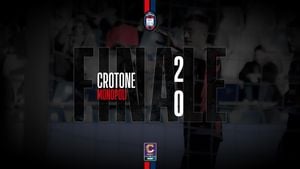Today marks the 44th anniversary of the attempted coup d'état on February 23, 1981, known as "23F," which sought to undermine the nascent democracy of Spain. At the heart of this historical moment was Lieutenant Colonel Antonio Tejero, who led armed Civil Guards to storm the Congress of Deputies during the investiture vote for Leopoldo Calvo Sotelo, intended to replace Adolfo Suárez as the Prime Minister. This coup, brewing for months, was deeply rooted in the political instability and violent backdrop of the time, all exacerbated by the legacies of the Franco regime.
The coup attempt transpired amid dire political and social tensions, including terrorist acts by ETA and staunch opposition from factions of the military against the newly established democratic framework. The protocol for the day had initially seemed straightforward but quickly devolved as Tejero, amid armed guards, yelled "Quiet everyone! Everyone down!" forcing legislators to the ground. The attempt seemed like a desperate grasp for power, led by military officials misaligned with the democratic progress post-Franco's death.
On this fateful day, the debate over national governance came to an abrupt halt. Tejero's armed intervention took place just minutes before the vote, as socialist deputy Manuel Núñez Encabo was about to cast his ballot. Historical accounts describe the chaotic scenes where legislatures, commanded by Tejero's frightened bark, huddled on the floor, the air thick with tension. A noteworthy moment captured live by Spanish state television, TVE, occurred as the events unfolded for all of Spain to witness, showcasing both fear and vulnerability inherent to the democratic process.
Fast forward 44 years, the specter of the 23F coup not only resonates as part of Spain's political history but serves as a catalyst for current political discourse. Many Spanish citizens reflect on those hours filled with dread, recalling how, within the democratic transition, there were fears of reverting to oppressive rule. The haunting memories evoke parallels to modern challenges, as calls for stability echo today amid economic uncertainties.
The various interpretations of 23F are manifold. Some view it as the last desperate gasp of military resistance to democracy, others as reflective of the broader societal struggles deeply ingrained within Spain's complex history. Juan Carlos I, the King of Spain at the time, emerged as the figure of authority—delivering his speech during the coup hours after its initiation, unequivocally denouncing the actions of the military men, hence reaffirming the monarchy's support for democracy.
Yet, for many, 44 years have not dampened the resolve to challenge undemocratic ideas. Contemporary voices compare the attitudes of the past with the current political climate, citing the rise of far-right ideologies and calls for military involvement in governance. Various socio-political movements have arisen, drawing distinct lines between the preservation of democratic values and the encroachment of authoritarian tendencies. There’s speculation over civil rights being eroded, with pundits noting how history repeats itself if vigilance isn’t preserved.
Many commentators, including journalists and political analysts, connection the dots from past to present. They cite how sentiments of fear and despair during the coup are mirrored today among different sectors of the Spanish populace, against the backdrop of new crises—economic struggles exacerbated by political mismanagement and corruption. Herein lies the recurring theme of 23F: fighting for rights and freedoms must go hand-in-hand with holding those entrusted with governance accountable.
Despite the historical progresses made since 1981, proponents argue the importance of not forgetting onlookers’ behaviors, when citizens collectively defended democracy. Citizens rallied across streets and plazas, exercising their democratic rights through protests, showcasing unity against the unrest at hand. Movements rooted in civil engagement today seek to echo those very sentiments, emphasizing their foundational role within the democratic establishment.
On the topic of lessons learned from the failed coup, there remains unresolved calls for broader investigations of civil and economic conspiracies surrounding the incident. Skepticism still lingers as critiques within Spain reveal structural vulnerabilities, with many urging for deep explorations of the moral and ethical instances leading to the coup attempt. Overall, the events of 23F represent more than just the episode of failed militarization; they reflect societal fears and the necessity of protecting democratic rights.
Reflecting on the legacy of 23F, it’s imperative to note the need for both citizens and governance to engage proactively with history. Today, skewed narratives, either through the lens of the past or attempts at rewriting history, demand scrutiny. Spain stands at the crossroads of preserving hard-earned democracy against the backdrop of modern populism and legislative turbulence, invoking memories from 1981 as reminders to watch over their rights with diligence and determination.



